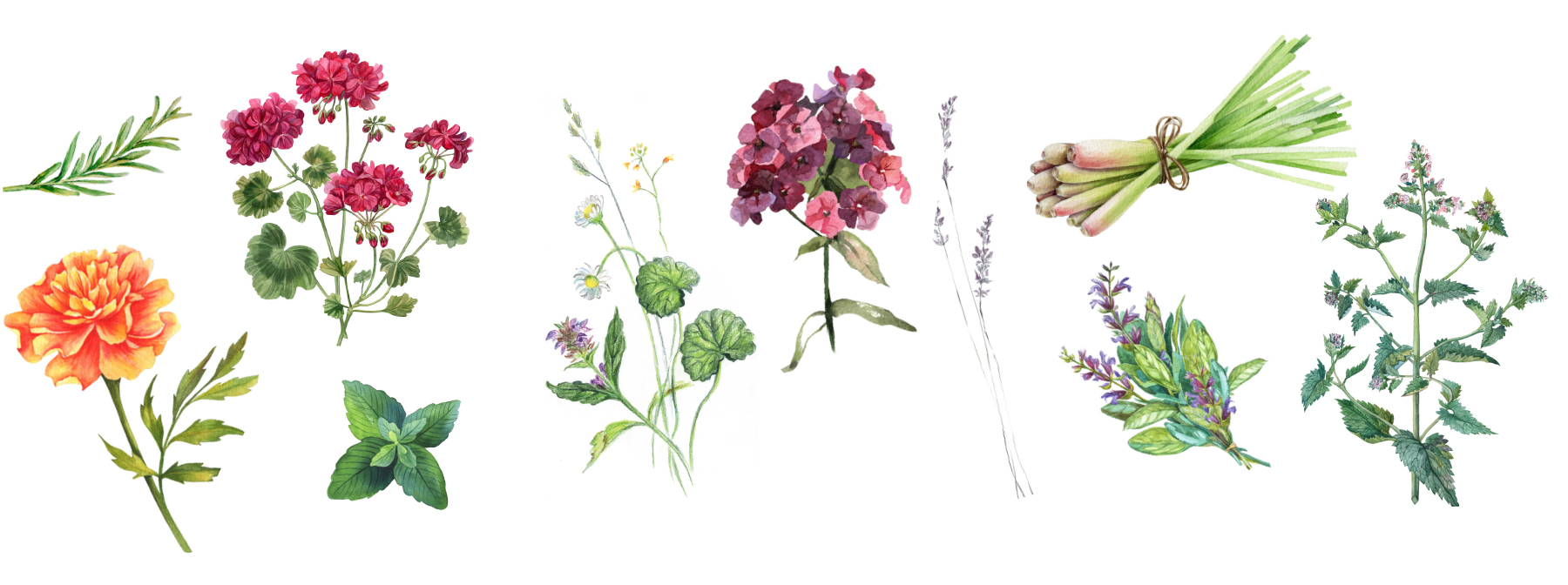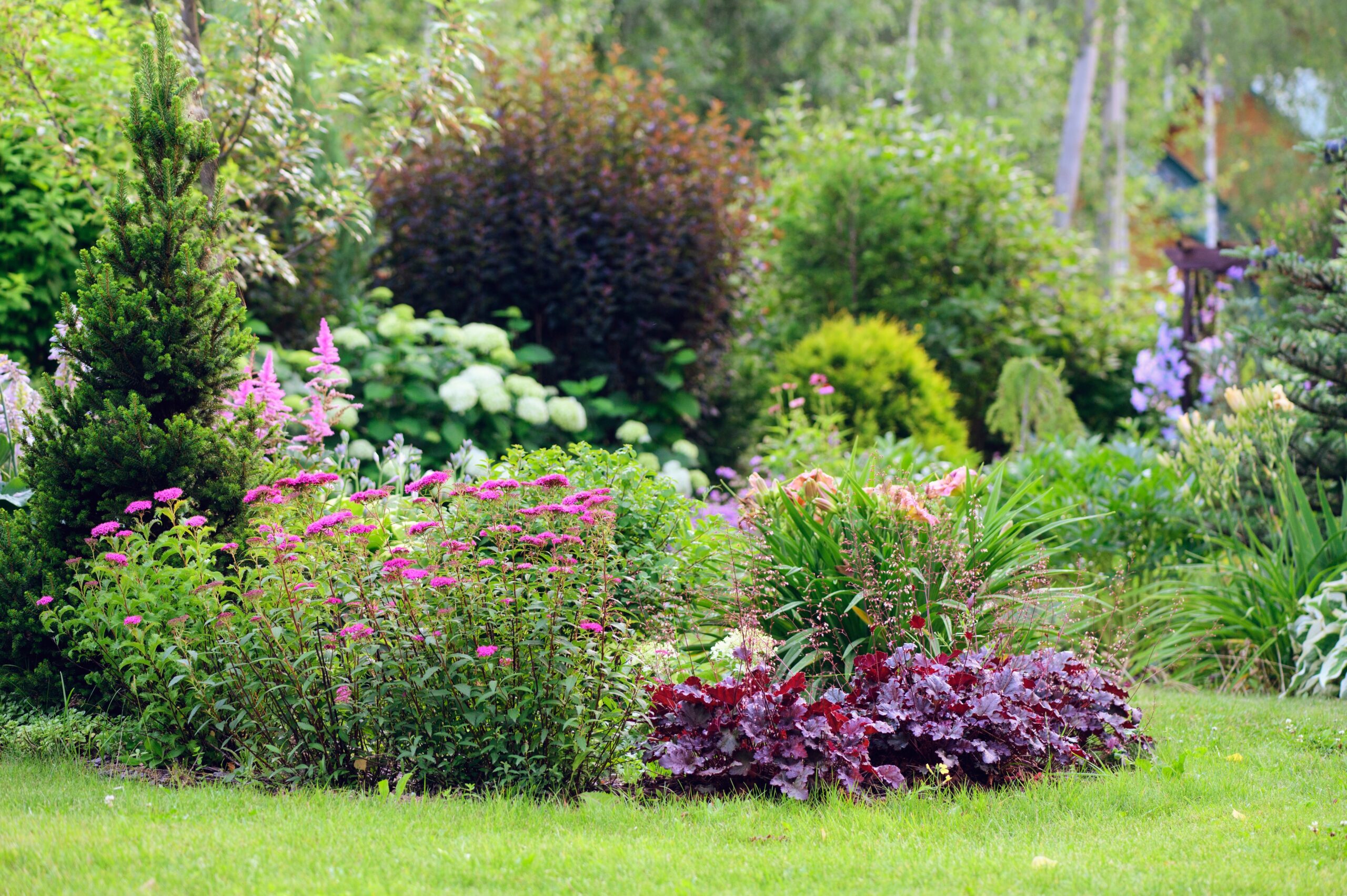by Brandy Abalos
Mosquitos and other creeping, buzzing bugs can be a downer when you’re trying to have fun outdoors. There’s nothing worse than sitting on the deck, watching the sunset when suddenly you’re swarmed with flesh-eating mosquitoes. Gnats and flies can be just as bad. While some bugs can benefit the environment, they are often an annoyance for people who enjoy the outdoors.
You could spend tons of money on a professional exterminator to treat your yard, or you could plant some of these plants that naturally repel mosquitos and other bugs.
Marigolds
Marigolds are easy to grow and can often be purchased already blooming. All you have to do is dig a hole and place them in, covering them with dirt. They come in rich colors like yellow, orange and red, often with mixtures of these tones. You can plant them in pots or near the entrance to your home to keep bugs out. Marigolds are also frequently grown as a border around vegetable gardens. They keep away mosquitoes and aphids, thrips, whiteflies, tomato hornworms, squash bugs and beetles.
Citronella Grass
Citronella is a commonly used mosquito repellant in candles and other items that can be purchased in stores. You can bypass the chemicals by directly planting citronella grass. Also called lemongrass, it has a distinct smell. According to experts, the living plant is even better at repelling pests than the citronella-scented products you can purchase in stores. The grass is low maintenance and does well in large planters. However, it does not withstand frost and thrives best in warm climates and sunny areas.
Sage
Burning sage has been said to ward off negative energy, but burning sage also repels bugs. If you hang out around a fire pit in your backyard, you can throw some in the flames or smolder it in a bowl nearby to keep the mosquitoes at bay. A homemade bug spray may also be made by drying sage and adding it to a bottle of apple cider vinegar. You should shake the container at least once per day for two or three weeks before your mixture is ready. Then, it can be sprayed into the air or applied to your skin as a bug repellant.
Lavender
Insects won’t attack your lavender plants because of their lovely fragrance. The essential oils that can be found on the leaves of the lavender plant ward off mosquitos, bugs and even small animals. Experts have reported that lavender oil may prohibit a mosquito from being able to smell. Lavender is tough and drought-resistant. It needs full sun and good drainage. Although it thrives in warm climates, it can endure almost anywhere.
Catnip
Catnip is a hardy weed that makes cats go gaga over its smell. However, it has also shown to be as much as ten times more effective than DEET as an insect repellant. Catnip is easy to grow and may even invade other areas of your garden. It is hardy and can grow in almost any condition.
Rosemary
Rosemary is frequently used in the kitchen, but it is also useful as a bug repellant. This herb has a woody scent that is known to keep mosquitoes, cabbage moths and carrot flies away. It does best in hot, dry climates and can be grown in any size container. If your area has harsh winters, simply bring your rosemary plant in for the season. Rosemary can be planted as a border to vegetable gardens and is often pruned into fancy shapes and trimmed to size as decoration.
Geraniums
Geraniums come in various scents, but the lemon-scented variety is popularly used to repel mosquitos. The scent is similar to citronella grass and is strong enough to be smelled from several feet away from the plant. Fragrant oils can be released from the leaves by crushing or cutting them. You can then place them around you while enjoying the outside or rub them on your arms and legs to repel bugs.
Mint
Mint is a good nontoxic option to keep bugs at bay. It repels mosquitoes, flies and ants away. Mint can be easily grown in pots or your garden. Leaves can also be nipped and dropped into afternoon tea. Mint leaves can be dried and spread throughout your home as a natural pest control method indoors.
Allium
The allium family is made up of bulbs like garlic and onions. They release strong fragrances that mosquitoes avoid. When you let them grow, allium plants grow whimsical flowers on slender stems. Oils can be made from garlic and onions that can then be spread around areas where you will be enjoying the outdoors. They can be grown in pots or a garden and don’t require much upkeep.
Floss Flower
Floss flower is an annual flower that works well as bedding or in containers. The flowers contain coumarin, which is a naturally occurring chemical that repels mosquitoes. However, it is important to note that floss flower is toxic if ingested by pets or humans. So, if you have animals or children around your property or indoors, you should avoid this method of insect avoidance.
Natural Methods of Repelling Insects Can Be Beneficial to Everyone
Although it may take some research to determine which plant is best for your home, natural plants can be a safe and effective method to repel mosquitoes and other bugs. They may be used in a home, outdoors, around a garden or when enjoying the outdoors. Some of them can even be turned into a spray and used while engaging in activities. Using natural plants to avoid bugs is safe for the environment and often more cost-effective than using chemicals.








Leave A Comment